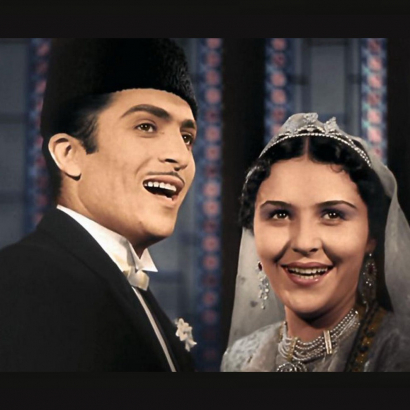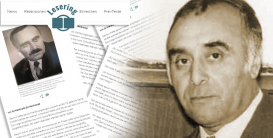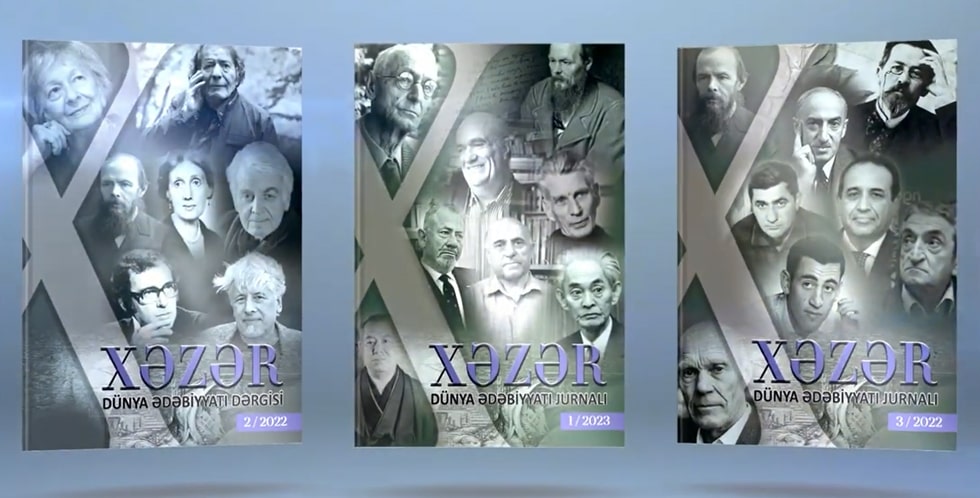The 70th anniversary of Arshin Mal Alan or the Stalin's order to surpass Hollywood

Shirin Manafov
Arshin Mal Alan is a 1945 Azerbaijani film operetta. The plot of the film was based on the operetta of the same name written by Azerbaijan's outstanding composer Uzeyir Hajibeyli. With support from the Haydar Aliyev Foundation, this black-and-white film restored in color and found a new lease of life amazing its audience across the world.
After the liberation of Europe by the Red Army in 1944, Stalin ordered cinematographers to praise the victorious, heroic, and powerful Soviet Union. Though all of the film studios across the country used all means to seek his order, only Azerbaycanfilm coped with it in 1945.
The bright success of Arshin Mal Alan heightened Europe's interest in the USSR. The film presented in 140 countries made a huge profit for the Soviet Union. Indeed, Arshin Mal Alan surpassed vast majority of Hollywood films in terms of its box-office success and fame, astonishing European audience who considered the USSR as a huge prison camp.
Film came out in 1945.
Since the first year of its release, Arshin Mal Alan won world acclaim. The film was translated into 86 languages and the operetta into 80 languages. Film was released in 140 countries. During the first six weeks of release 16 million people watched the film in the USSR. In those days, the profit made from the Azerbaijani and Russian versions of the film was reaching 5 million 807 thousands rubles. During the first two years 5 billion rubles in profit from the film transferred to the State budget. This profit gave an opportunity to buy equipment for a metallurgical plant in 1947. And Arshin Mal Alan had continued to yield currency to the country from its rentals for long years.
Arshin Mal Alan, one of the most yielding export fields, stimulated the rapid development of the Soviet film industry after the Great Patriotic War. Dozens of new films were shot by means of 5 billion ruble gained from the rentals of this film.
The success of Arshin Mal Alan ensured high level of importance to other Soviet films abroad. The film provided a good service to the Soviet cinema and introduced it to the world as a producer of optimist films. The demand for the film was very high in Europe, so the Soviet film industry affected the directions of the development of cinematography in Poland, Eastern Germany, Romania, Hungary, and even in Italy. As Arshin Mal Alan was successful in China, Mao Tszedun ordered to shoot a Chinese version of the Azerbaijani operetta and soon afterwards "Love under Cover" came out.
Genius image maker
Stalin was the first man who stated that the film had a great potential.
The film faced an unforeseen counter-reaction by critics in the Literary Council. The government censors determined the film to be offensive to the new Soviet ideology and praising the bourgeois lifestyle, so they decided not to release it.
Only genius director Sergey Eisenstein made an objection to the Literary Council's decision and insisted on informing the greatest critic Stalin about his specific comment. Meanwhile, the director drew caricatures of members of the Literary Council during the discussion and called this caricature series as "Orgy during plague".
Stalin watched Arshin Mal Alan three times with admiration and said "Well done, that is all our nation need and characters are excellent." Stalin's statement targeted notable directors in the Council.
Only Eisenstein was able to conceive Stalin's expectation: there was a need for a film to export. After the backspin in the war with Germany in 1943 and the victory of the Soviet Army, Stalin commanded cinematographers to shoot films that would surpass Hollywood films. All notable directors working in the film studio in Dashkand made efforts to create a film that would be able to compete with Hollywood films. But only Arshin Mal Alan had a lucky break.
Asgar was played by Rashid Behbudov and Gulchohre by Leyla Javanshirova-Bedirbeyli.
What was the reaction in Western countries? The audience were leaving the cinema with pleasure and changed their mind about the life in the Soviet Union. The film praised the bright image of Stalin's personality, country, and authority.
What was Stalin's first impression about the film?
The story takes the characters back in time to the 1900s' Baku, a part of the Stalin's youth spent in Baku. He knew Baku like the palm of his hands. He was in Baku first on July, 1904. Later he was arrested and stayed in a Bayil jail, Baku, from 1907 to 1910. He lived in Baku for two years after he got out of prison.
Stalin had watched some scenes of Arshin Mal Alan over and over. Because in 1925 the play had been staged in six different languages: Georgian, Azerbaijani, Armenian, Russian, Assyrian, and Hebrew. Everybody was familiar with the story and characters. Arshin Mal Alan was played to full house everywhere, people came to watch it heaps of times with their families. The subject was urgent so the play had periodically been re-played for subsequent generations of audiences.
Both the film and its producing nation were appreciated. The second factor which was a paradox for the members of the Literary Council had an important place for Stalin. Unlike the professional approach of Eisenstein, Stalin's particular concern was to create a perfect image of Soviet society.
Arshin Mal Alan praised proprietary and personal expedience as the indicator of bourgeois. Those days young parodist Arkadi Raykin worried about the details of the film and its filming processes. He wanted to know the source of Stalin's unexpected interest in this film.
Stalin commanded Soviet cinematographers to create a charming image of the USSR. Unlike dozens of failed attempts, Arshin Mal Alan achieved the goal. Those years' films were only about the fight against the fascism or the bravery of soldiers.
Mr.Hajibeyli and his team proved that Baku in the 1900s existed, and energy and optimism of the Azerbaijani renaissance maintained in this film and was contributing to our culture. Even today we need the epoch of Mr.Tagiyev and Mr.Hajibeyli. In those times people could have become winners without destroying our values. None of the films, plays, exhibitions, speeches of politics, and conferences did follow the way pioneered by Arshin Mal Alan.
At first sight this operetta seems so simple but we must evaluate actors' performance. Performances were excellent and surprised the audience in the West. Especially the proficiency of Lutfali Abdullayev taught everybody how to maintain own rights. The brave character claims his right kindly, and achieves his aim without using any force.
The Soviet Union attracted the attention of others using such a smart trick. They showed that they had humanist traditions and they maintained and improved the traditions. The initiator of the film Uzeyir Hajibayov understood the claim of the Soviet Union. A country which does not use any force, support humanism, and protects poor teaches everybody to win with films such as Arshin Mal Alan
This subject is on agenda today in the post-Soviet period.
That is what all we need. If we aim to bring up actors like Lutfali Abdullayev, we need to study the age bestowed us a treasure including these actors and films. What is the power of our wealth? The establishment of big companies leading Azerbaijanis stimulated the development of our society during the period of rivalry in oil field in the 1880-1919s. No one knew that Arshin Mal Alan would surpass the Soviet classic films on the subject of oil in dozens of countries. The success of the film surprised the giants of the Soviet film sector.
There was no need to propagandize Arshin Mal Alan in the important film festivals such as the Venetian Film Festival, as this film was contrary to the logic of totalitarian government.
AND OTHER...
-
 Translation Centre’s Book in the Top List of the International Book Fair
Translation Centre’s Book in the Top List of the International Book Fair
The book “The Second Life of the Legend” by Elvira Arasly, the popular children’s writer, published within the joint project of the Azerbaijan State Translation Centre...
-
 Khagani Shirvani’s Creativity on the Literary Portal of England
Khagani Shirvani’s Creativity on the Literary Portal of England
“Write Out Loud”, the leading poetry portal of England, has posted in English the ghazal “A Love Song” by the great Azerbaijani poet Khagani Shirvani as part of the...
-
 Isi Malikzade’s Creativity on German Literature Magazine
Isi Malikzade’s Creativity on German Literature Magazine
LESERING.de, a popular German e-literature magazine, has posted in German the short story Salt by Isi Malikzade, the notable Azerbaijani writer, as part of the AzSTC project “Azerbaijan Literature in an International Virtual World”.









